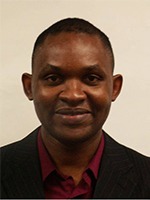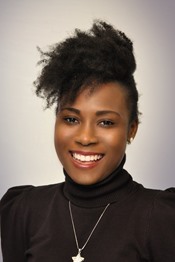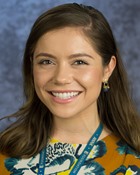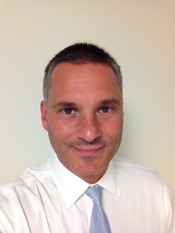Addressing Global Needs in Medical Physics Support
E Lief1*, C Trauernicht2*, W Ngwa3*, S Parker4*, A Yorke5*, I Barreto6*, C Della Biancia7*, (1) VA Medical Center, Pelham, NY, (2) Stellenbosch University, Cape Town, ZA, (3) Johns Hopkins University, Washington, DC, (4) Wake Forest Baptist Health High Point Medical Center, Winston-salem, NC, (5) University of Washington, Seattle, WA, (6) University of Florida College of Medicine, Gainesville, FL, (7) Memorial Sloan-Kettering Cancer Center, New York, NY
Presentations
MO-J-206-0 (Monday, 7/11/2022) 4:30 PM - 6:00 PM [Eastern Time (GMT-4)]
Room 206
The aim of the AAPM International Council (IC) is to identify and develop strategies for advancing the practice of medical physics globally, address disparities in healthcare and develop mitigation strategies in collaboration with other global stakeholders that include international medical physics organizations and non-profit-organizations. To maximize the impact of the IC’s work there is a need to conduct a rigorous up-to-date needs assessment, and to generate data that will serve as a reference for collaborating with institutions and partners in different world regions. The AAPM Global Needs Assessment Committee (GNAC) will conduct three targeted surveys in order to generate data that will inform the work of the AAPM IC. The first survey focuses on departmental and institutional leaders in Low to Middle Income Countries (LMICs), the second survey will focus on medical physicists working in LMICs, and the third survey will focus on our industry partners. The surveys will serve to better establish areas of need and a baseline for high impact global health collaborations and action.
An important aspect of GNAC work is to assess the level of physics quality assurance (QA) and practices in radiotherapy (RT) centers in low and middle-income countries. To better determine the needs, an initial survey of RT centers in six countries was conducted in 2020. Questions were centered on the topics of equipment, institutional practice, physics QA, management, and safety practices. To validate the survey results our team conducted onsite visits to all RT-centers in one of the countries in 2021. There was one private, and two public institutions. Public Institution-1 was in the capital of the country and Public Institution-2 was in a large regional city. Follow-up surveys were sent to seventeen (17) medical physicists. Qualitative and descriptive methods were used for the data analysis. We assessed operational challenges using a 5-point Likert system: machine downtime, patient related issues, power outage and staffing. We received a 92% and 100% response rate from the initial and follow up surveys, respectively. In the initial survey of the RT centers, there was a direct correlation between the QA needs and the country index. Needs that were identified included: film/array detectors, independent dose calculation software, calibration of ion chambers, diodes, TLDs, use of phantoms for verification, TPS test phantoms, imaging test phantoms and film dosimeters, and also education, and training. Over 80% of respondents have experience with Eclipse and Prowess Panther TPS. The average daily patient workload on an average external beam device for each clinic was as follows. LINAC: Private: 25, public-1: 55, public-2: 40. For a Co- 60 teletherapy unit: public-1: 45, Public-2: 25. Public-1 and 2 lacked the equipment necessary to conform to the QA recommendations of AAPM TG-142 and TG-198. Public-2 reported significant operational challenges above with values of 4.5, 3 and 2.75 and 2.25 (in a 5-point system). Notably Public-1 and 2 have peer review chart rounds which are attended by clinical oncologists, medical physicists, physicians, and physics trainees. All 17 physicists had a system of documenting, tracking, and trending of patient-related safety incidents but only in one of those 17 physicists reported using a voluntary incident learning system. Although not quantifiable, the audits during site the visits showed that the education and training remain the most important factors in operating successful QA and management programs. This was the first of a continent-wide survey intended to spotlight QA practices in LMICs, the challenges faced, and the lessons learned. It also helped to understand the future needs of local physics QA and management programs.
Conferences enable knowledge exchange, networking, and opportunities for personal and career development. Attendees from both low to middle income (LMIC) and high income (HIC) countries have much to contribute and gain from active participation in global conferences. Numerous steps should be made to remove barriers to attendance, increase participation of attendees from various regions, and ultimately enable global conversations and actions that support the mission of the International Council.
Educational and training is a very important aspect of our professional growth and ultimately impacts every activity we perform in our Medical Physics profession. In the past years, global education has become a topic in every conference of national and international professional societies. Everything we can do as trained Medical Physicists to promote Global Education will be highly appreciated by the trainees and the benefits will grow exponentially when we all start sharing our experience and knowledge.
Learning Objective 1: To learn about the tasks of AAPM International Council and Global Needs Assessment Committee.
Learning Objective 2: To appreciate the importance of Global Education and professional connections with physicists from Low- and Middle-Income countries.
Learning Objective 3: To understand the importance of inviting physicists from other countries to AAPM meetings and attending international conferences to establish international connections and support global educational efforts.
Learning Objective 4: o To learn about the assessment surveys being conducted by the AAPM Global Needs Assessment Committee to better understand the needs of other countries.
Handouts
- 175-66872-16361659-183754-536285405.pdf (Stephanie Parker)
- 175-66874-16361659-183099-921413606.pdf (Izabella Barreto)
- 175-66875-16361659-189710-1939131557.pdf (Cesar Della Biancia)
Keywords
Not Applicable / None Entered.
Taxonomy
Not Applicable / None Entered.
Contact Email

















